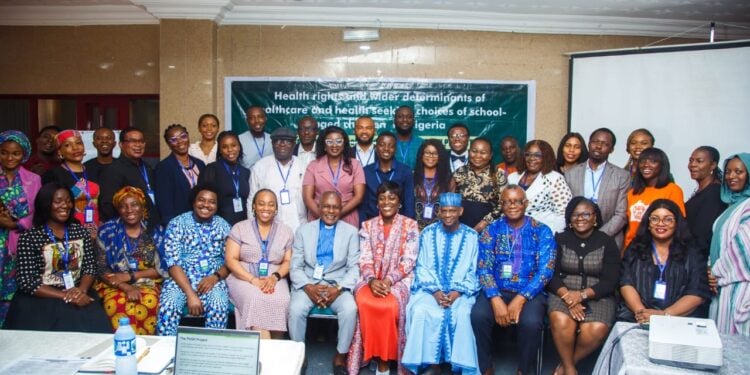Concerned about health outcomes for children in Nigeria, stakeholders in research have called on governments and policymakers to put in place health intervention policies that will protect school-aged children between the ages of 5-17 years.
They made the call during a two-day National-Level Policy Dialogue held in Abuja, organised by Health Policy Research Group (HPRG) in collaboration with Rivers State Government and Chorus Research On Urban Health on the theme “Healthcare, Health-seeking And Health Rights Of School-aged Children In Nigeria.”
The research focused on slums and non-slum communities in Rivers State, applying various methods in information gathering to highlight both quantitative and qualitative evidence of the healthcare challenges facing children aged 5–17.
Through its PUSH Project (Protect Urban School Children’s Health), an initiative developed in partnership with the HPRG at the University of Nigeria, Nsukka, the group engaged in interviews, group discussions, classrooms observation, and surveys with 408 schoolchildren and 156 school staff.
Speaking on the project, HRPG Lead Researcher, Prince Agwu, called on government to give more attention to children older than four, adding that many illnesses affect children in this age group, including malaria, fever, and respiratory infections.
Agwu said although Nigeria has made some progress with children’s health, most of the focus had been on children under five with less attention paid to the health of school-aged children (5-17 years), who made up a large part of all children.
“Although the health statistics for Nigerian children under-5 years have not been the best, but that the country has made some decent progress in polio eradication, immunization coverage, and reduction of mortality cases. But we still have a big elephant in the room – What is the health protective and promotive status for 70% of our children population who are between 5 and 17 years?”
He decried the poor effect of laws and plans that exist for children’s health, such as the Child Rights Act, the National School Health Policy, and the National Policy on the Health and Development of Adolescents and Young People in Nigeria (2019), saying they do not have enough positive impact on children’s health.
On her part, former Rivers State Commissioner for Health, Dr Adaeze Chidinma Oreh restated her commitment to improving the health and well-being of school-aged children.
Oreh said the PUSH project aimed to evaluate and enhance existing child health policies for children aged five to 17 years, ensuring children receive the support and services needed to thrive.
During her presentation, she highlighted findings from extensive research which revealed significant gaps in the implementation of school health services, despite clear policy provisions.
“The research identified several critical issues, like inadequate fulfilment of primary healthcare responsibilities to schools, limiting access to adolescent-friendly services.
“Economic and human resource barriers are hindering effective health service delivery in schools. There are also leadership and funding gaps within the National School Health Policy, which have contributed to unsafe school environments, unaddressed child abuse and increased reliance on informal healthcare providers,” she said.
The commissioner emphasised the urgent need for collaboration to bridge the gap between primary healthcare centres and urban schools, particularly for Nigeria’s estimated 65 million children.
The policy dialogue brought together stakeholders from various sectors, including religious leaders, representatives of the children’s parliament, academics, and policymakers in health, education, social welfare, and justice.



